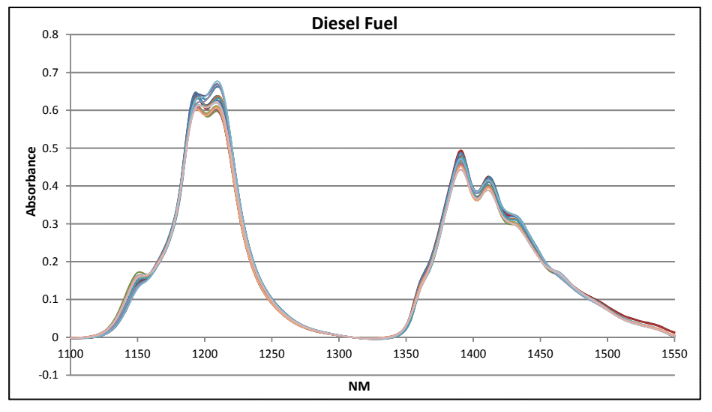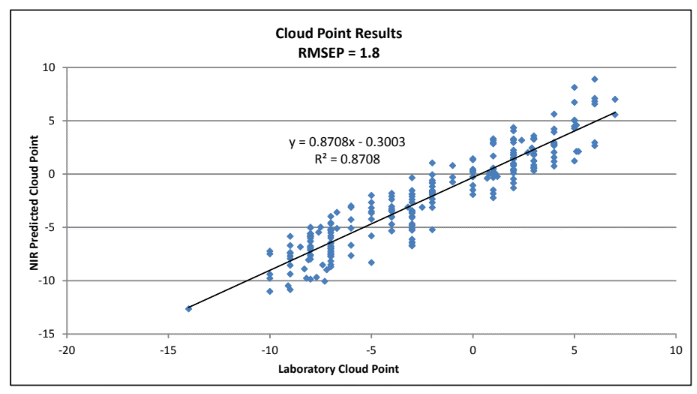Process Insights produces a near-infrared (NIR) dual beam spectrometer (NIRO-O) which is ideal for the chemical and physical properties analysis of diesel fuel.
A fuel’s cloud point is the temperature below which solid waxes form in the fuel, which makes the fuel appear cloudy. The cloud point is an important parameter as the presence of solids in the fuel can adversely affect engine performance and result in the clogging of filters.
Conventional lab methods of determining the cloud point tend to be based on optical analysis but require the fuel to be cooled to its cloud point. Instead, Process Insights’ NIR system measures changes in composition that can be related to the cloud point. This article will explore this fiber optic-based, near-infrared (NIR) spectroscopic method and show how it can be used for process monitoring or for lab analysis.
Background
The NIR region of the electromagnetic spectrum allows the use of the overtone and combination bands of the C-H, O-H, and N-H fundamentals. By measuring the NIR spectra of a series of fuel samples of known cloud point, a quantitative model can be developed which will allow the measurement of future samples based only on their NIR spectrum.


Process Insights analyzer systems use fiber optics to allow the sample probe to be located in remote locations away from the spectrometer itself.
Analysis
Simple pre-processing data cleaning was carried out using a Partial Least Squares (PLS) Regression analysis. The predictions given by this model are shown in Figure 2.
The calibration model gave a RMSEP (root mean square error of prediction) of 1.8 degrees, this value can be compared to the lab reference method error. In this instance the ASTM method reproducibility for the determination of the cloud point temperature is between 2.5 – 4o.
The NIR method compares well with these results.
Experimental
A range of different process diesel fuel samples of known cloud point temperatures were measured using an NIR spectrometer (Process Insights Model 412) between 1,100 and 1,600 nm.
Figure 1 shows the absorbance spectra for these samples taken using an on-line process probe of 1 cm pathlength.
Discussion
The determination of a diesel fuel’s cloud point temperature can be rapidly and accurately carried out using software and hardware from Process Insights.
The method explored in this article reduces the need to require samples for the lab and can provide results in a matter of seconds, allowing real-time, multi-parameter measurement of complex samples.

This information has been sourced, reviewed and adapted from materials provided by Process Insights – Optical Absorption Spectroscopy.
For more information on this source, please visit Process Insights – Optical Absorption Spectroscopy.